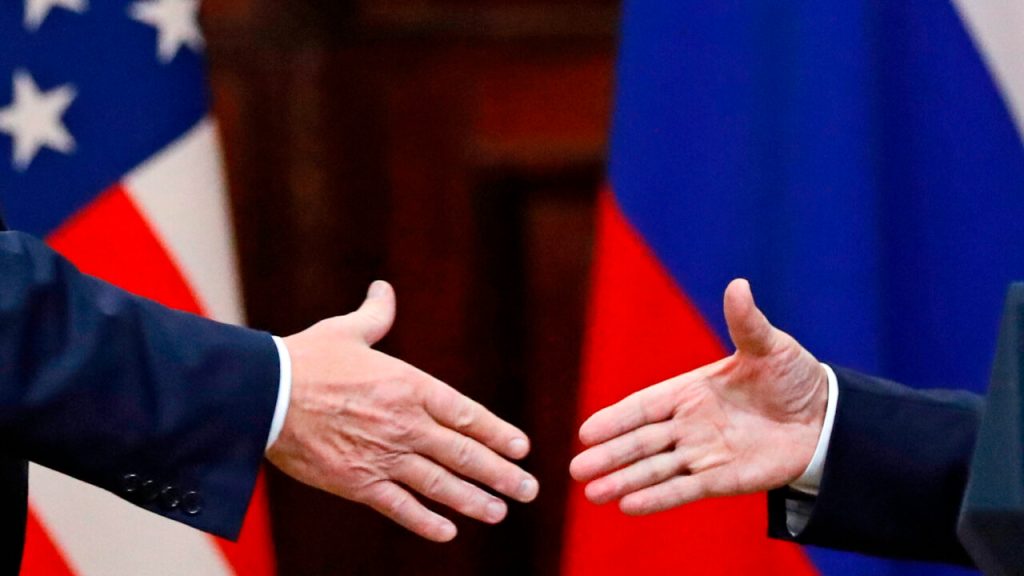A Secret Deal Between East and West Over Ukraine and Afghanistan
DIDPress: The recent warning by Gulbuddin Hekmatyar about the potential division of Ukraine and Afghanistan between the U.S. and Russia—far from being the delusion of a marginalized political figure— reflects a historical reality that has repeatedly surfaced in the dirty games of politics.

Gulbuddin Hekmatyar, leader of the Hezb-e-Islami, in a recent note claimed that Washington and Moscow are pursuing a deal in which the U.S. would relinquish Ukraine, and in exchange, Russia would hand over Bagram Air Base and American military equipment in Afghanistan to Washington. To support his claim, he cited recent statements from Russian officials, including the Foreign Minister and Zamir Kabulov, Russia’s special envoy for Afghanistan, who have downplayed the significance of Bagram for Moscow.
Setting aside Hekmatyar’s political record and his role in Afghanistan’s tragic decades, one cannot deny the historical fact that imperial powers of the East and West have always resorted to secret bargains and backroom deals in their rivalry over control of strategically important regions such as Afghanistan—and they continue this approach today under different forms.
Hekmatyar’s warning about a possible division of Ukraine and Afghanistan between the U.S. and Russia reflects a recurring political reality seen repeatedly in the fateful histories of peripheral countries like Syria and Afghanistan.
The sudden collapse of Bashar al-Assad’s government in Syria was also analyzed within the framework of similar covert bargains among global and regional powers with strategic influence. For instance, Russia handed Syria over to Hay’at Tahrir al-Sham, a U.S.-backed proxy, in exchange for Donald Trump ceding Ukraine to Vladimir Putin.
Whereas in the past imperial powers seized more territories through costly and bloody military campaigns, today the same historic pattern repeats differently. This time, powers seek less expensive and more rational solutions to divide spheres of influence. The term “political rationality,” widely discussed among political and academic elites today, essentially refers to these behind-the-scenes power deals aimed at reducing the costs of direct military confrontation. In this context, negotiated transfers of land and resources have become a common practice instead of military occupation.
Therefore, while the hypothesis of a U.S.-Russia deal over Afghanistan and Ukraine cannot be entirely dismissed, existing evidence indicates such a deal does not mean a full surrender of these countries. Rather, the primary objective is to gain strategic influence and secure economic interests for both sides.
The signing of agreements allowing U.S. access to Ukraine’s mineral resources and Russia’s efforts to invest in Afghanistan are clear examples of this reality. Each side strives to expand its geopolitical dominance while recognizing the economic interests of the other.
Ultimately, the main victims of these rivalries are the peoples of countries like Afghanistan and Ukraine, whose freedom, independence, and sovereignty are ignored in the calculations of global powers. Although the form of domination has changed in today’s world—no longer marked by traditional wars—the essence of imperialism remains intact.
The only hope in this process is that with the reduced inclination of powers toward bloody wars, nations might find some breathing space amid these covert deals—even if the price is the complete loss of control over their own destinies.
By Rahel Mousavi – DIDPress